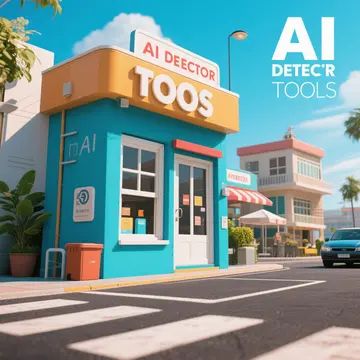As AI coding assistants like ChatGPT and GitHub Copilot become increasingly popular among developers, the need for reliable code AI detector tools is rising sharply. But can these detectors accurately identify AI-generated code? In this article, we dive deep into how code AI detection works, its current capabilities, and the future challenges it faces.

What Is a Code AI Detector?
A code AI detector is a specialized tool designed to analyze source code and determine whether it was written by a human or generated by artificial intelligence. Unlike standard plagiarism checkers, these detectors look for subtle patterns in syntax, structure, and token usage that often emerge in AI-generated code from models like ChatGPT and Copilot.
Key Features of Code AI Detectors:
Syntax Pattern Recognition
Token Frequency Analysis
Unusual Code Style Identification
Machine Learning-Based Classifiers
Can Code AI Detectors Recognize ChatGPT-Generated Code?
ChatGPT's code output often has distinctive traits: well-commented blocks, consistent indentation, and common library imports. A robust code AI detector uses these signs to predict AI involvement. However, ChatGPT can also mimic different human styles, which sometimes makes detection tricky.
?? Example: ChatGPT Signature
Generates detailed docstrings, even for simple functions. Overuse of standard libraries like re or datetime is common.
?? Detection Difficulty
If a user modifies the output slightly, the code AI detector may struggle to classify it confidently as AI-written.
How Well Can Detectors Spot GitHub Copilot Code?
GitHub Copilot, powered by OpenAI Codex, suggests code snippets based on your coding context. Unlike ChatGPT, it focuses on short, in-line completions. Detecting Copilot-generated code requires attention to micro-patterns, such as consistent boilerplate suggestions and predictable variable naming.
Real Challenge: Copilot often produces code indistinguishable from snippets found on Stack Overflow or GitHub itself, making detection much harder than with ChatGPT.
Top Real Code AI Detector Tools in 2025
?? GPTZero Code Classifier
Originally built for essays, GPTZero now features code analysis. Detects AI patterns across Python, JavaScript, and Java.
?? Turnitin Code AI Detector
Expanded its academic detection platform to cover AI coding assignments. Integrates into university LMS systems.
??? CopyLeaks AI Content Detector
Offers code-specific analysis modules. Identifies repetitive, pattern-based coding indicative of AI generation.
Limitations of Current Code AI Detectors
Despite impressive advances, no code AI detector can claim 100% accuracy. Here's why:
AI code can be heavily edited post-generation.
Human coding styles are incredibly diverse, sometimes mimicking AI patterns unintentionally.
Some detectors overfit to specific datasets, reducing real-world performance.
? Pro Tip: Detection is more reliable when analyzing large codebases rather than single functions.
Future Trends: Smarter Code AI Detectors on the Horizon
The future of code AI detector technology is promising. Emerging techniques like graph neural networks and semantic fingerprinting could vastly improve detection. Companies like Turnitin are investing heavily in hybrid models that combine token analysis with deep semantic understanding.
Moreover, standards may emerge where AI-generated code is watermarked invisibly—making detection trivial without violating user privacy or intellectual property rights.
Important Ethical Considerations
As AI coding detectors evolve, ethical debates intensify:
Should students disclose AI assistance?
Can employers penalize employees for using Copilot?
How can open-source licensing remain fair?
Striking a balance between innovation and transparency is critical for the future of software development.
Key Takeaways: How Good Are Code AI Detectors at Spotting ChatGPT and Copilot?
Detection is possible but not foolproof, especially if users modify generated code.
ChatGPT-generated code is easier to detect than Copilot suggestions.
Top detectors include GPTZero, Turnitin, and CopyLeaks.
Future improvements will rely on advanced semantic analysis and possible watermarking.
Final Thought
While no code AI detector can guarantee perfect accuracy today, the race is on. Developers, educators, and employers must stay informed as detection technology continues evolving rapidly.
See More Content about CODE AI DETECTOR
